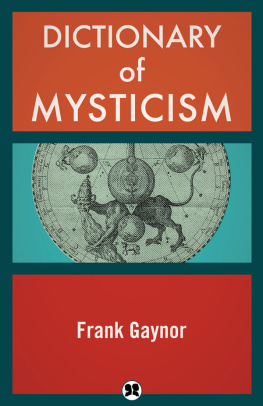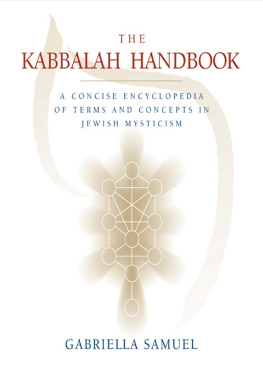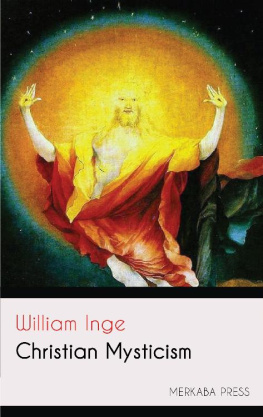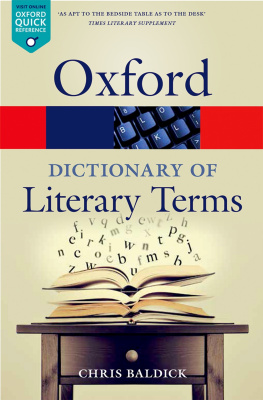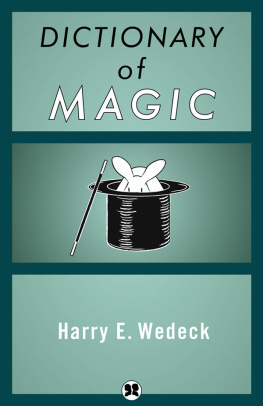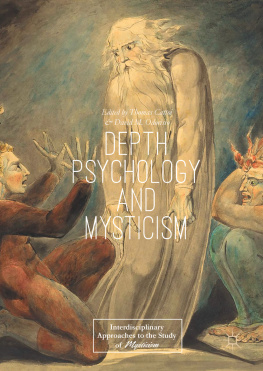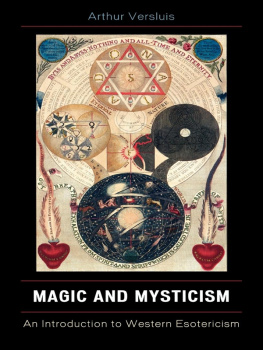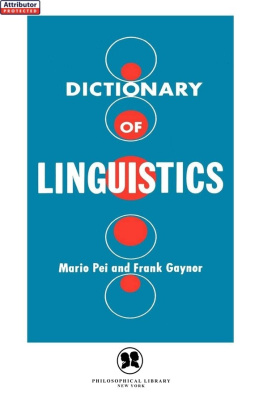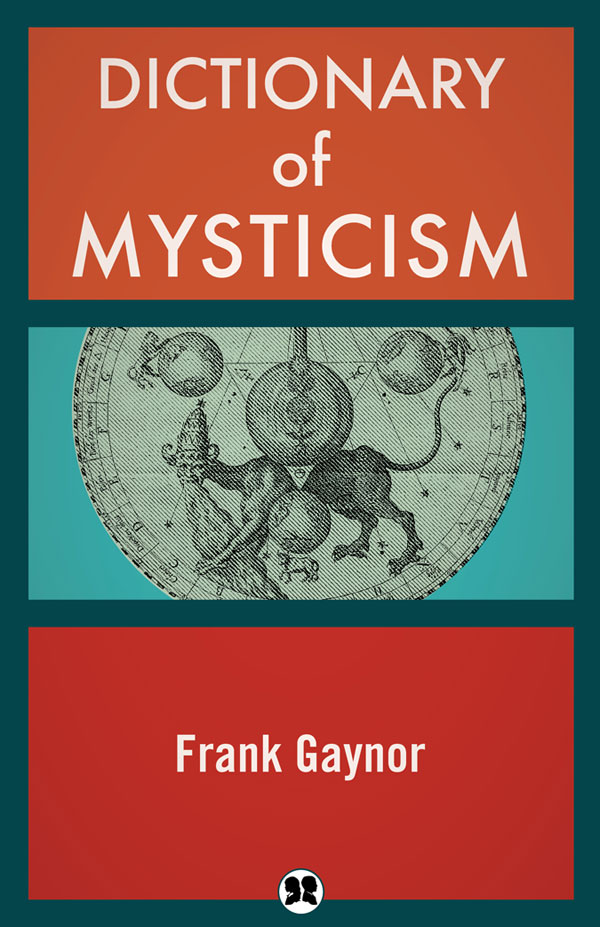ACKNOWLEDGMENTS
The editor takes great pleasure in expressing grateful acknowledgment and thanks to the following authors and publishers for their permission to use copyrighted material in the preparation of this volume:
George Allen and Unwin Ltd., London, publishers of A Dictionary of the Sacred Language of All Scriptures and Myths by G. A. Gaskell.
Wing Anderson, Los Angeles, Calif., publisher of Oahspe (see p.127).
The de Laurence Co., Inc., Chicago, Ill., publishers of The Great Book of Hindu Magic and East Indian Occultism and The Book of Secret Hindu Ceremonial and Talismanic Magic by L. W. de Laurence.
Duke University Press, Durham, N. C., and the editors of The Journal of Parapsychology.
Dr. Nandor Fodor, author of Encyclopaedia of Psychic Science. Marc Edmund Jones, author of Occult Philosophy (David McKay Co., Philadelphia, Pa.).
Library Publishers, New York, N. Y., publishers of Swans Anglo-American Dictionary.
Philosophical Library, Inc., New York, N. Y., publishers of Hindu Philosophy by T. Bernard, An Encyclopedia of Astrology by N. de Vore, An Encyclopedia of Religion by V. Ferm (ed.), Forgotten Religions by V. Ferm (ed.), Introduction to Comparative Mysticism by J. de Marquette, The Splendour That Was Egypt by M. A. Murray, Dictionary of Philosophy by D. D. Runes (ed.), and Christian Science and Philosophy by H. W. Steiger.
The Rosicrucian Order (AMORC), San Jose, Calif., publishers of The Rosicrucian Manual by H. Spencer Lewis, Ph.D., F.R.C. George Routledge and Sons, Ltd., London, publishers of An Encyclopaedia of Occultism by Lewis Spence.
Schocken Books, Inc., New York, N. Y., publishers of Tales of the Hasidim by M. Buber.
Theosophical University Press, Pasadena, Calif., publishers of The Key to Theosophy by H. P. Blavatsky.
The Yogi Publication Society, Chicago, Ill., publishers of The Philosophies and Religions of India by Yogi Ramacharaka.
A
Aarons rod: The rod, or wand, with a serpent twined round it, which was used in the Mosaic ceremony of initiation; it appears to have contained the sacred fire. Now commonly employed as an emblem signifying a physician; similar to the caduceus of Hermes.
Abbadon: The Hebrew name of the bottomless pit, the place of the lost in Sheol; the abyss of hell.
ABC of the Devil: Handwritten books for the use of magicians and sorcerers.
Abhasa: A Sanskrit term (literally meaning shining forth ) for the cosmopsychological process which takes place as the One becomes the Many, as it is described by the philosophical system called Trika (q.v.).
Abhasana: The same as abhasa (q.v.).
Abhava: Sanskrit for non-being, non-existence. In Hindu philosophy, a means of correct knowledge defined as the deduction of the existence of one of two opposite things from the non-existence of the other.
Abheda: A Sanskrit term (literally meaning indistinct ) for identity, used especially in reference to any philosophy which denies the distinctness of spiritual and material, or divine and human principles.
Abhiseka: In Hinduism, the ceremonial bathing in sacred waters. In Buddhism, the tenth stage of perfection. The term is used also for the anointment of kings and high officials upon their ascension to power or as a recognition of some signal achievement.
Abidharma: The third part of the Buddhist Tripitaka (q.v.) containing lessons in metaphysics and occultism.
Abigor: In demonography, the name of a powerful demon, high-ranking in the infernal empire.
Abominable snowmen: A legendary race of superhuman giants, hostile to man, inhabiting the snowy slopes of the Himalayas.
Abracadabra: A magic word. A triangular arrangement of its letters worn on an amulet is believed by occultists to bring health and ward off disease.
Abraxas: A magic word, said to be the name of a god, the seven letters of which form the number 365, the number of days in a year. The word engraved on a gem or stone is considered by occultists to constitute a very potent charm.
Absent treatment: Cure of physical illness from a distance, by occult or metaphysical means.
Absolute: In metaphysics and mystic philosophy, the Absolute is the ultimate referent of thought, the Unconditioned, the opposite of the Relative.
Absolute Ego: In the philosophical system of J .G. Fichte (1762-1814), the Ego before its differentiation into an empirical Self and Non-Self.
Absolutism: The theory of the Absolute (q.v.); the view that standards of moral value are objective, absolute, superhuman and eternal.
Abstract: A partial aspect or quality considered in isolation from an object as a whole.
Acarya: A Sanskrit word, meaning spiritual teacher; a title given to high-ranking adepts of esoteric science.
Accepted chela: A disciple of esoteric philosophy, who has passed the fourth initiation.
Acolyte: In occultism, anyone under occult discipline at a stage of first responsibilities, but prior to formal induction into the invisible fellowship; a licentiate or probationer. (Marc Edmund Jones)
Acosmism: The doctrine that the external, physical world is non-existent, unreal, a mere appearance ( maya ) of the Supreme Being, who is the only reality.
Active influence: A term used in astrology, to denote the influence resulting from an aspect between two or more astrological factors or sensitive points, thereby producing the action that can materialize in an event.
Activism: The philosophical theory which considers activity, particularly spiritual activity, to be the essence of reality. The concept of pure act ( actus purus ) traceable to Aristotles conception of divinity, was influential in Scholastic thought, and persists in Leibniz, Fichte and modern idealism.
Adam Kadmon: Hebrew for primeval man. The Kabalistic name representing humanity, the Heavenly Man, prior to falling into sin.
Adamic: An alternative name for the Polarian root race (q.v.).
Adamic era: See: Cosmic epochs.
Adapa: In Babylonian mythology, the name of a hero created and endowed with wisdom by Ea, whose temple at Eridu he was to tend. Summoned before Anu, god of the sky, he unwittingly refused immortality.
Additor: A modified ouija board; a small round, hollow box, with a pointer protruding from it, moves under the fingers over the board bearing the letters of the alphabet.
Adept: One who has attained to proficiency in any art or science. In occultism, one who has attained the stage of initiation and has become a Master of esoteric science and philosophy.
Adhyatma: Sanskrit for Supreme Spirit.
Adience: That continuous, automatic repetition of action which esoteric philosophy regards as a characteristic of an elemental (q.v.).
Aditi: The name (Sanskrit for boundlessness ) of a Vedic goddess, mother of the gods known as Adityas; she is identified at times with the earth, at times with the sky, and at other times is hailed as a cow.
Adityas: A group of Vedic gods, sons of the goddess Aditi. Their number is variously given as six or eight, in later times also as twelve.
Admadiya: A Moslem sect founded in the late 19th century in India, which interprets the jihad (q.v.) as a striving after righteousness.
Adonai: Hebrew word, meaning The Lord, used by Jews in speech and in writing instead of the name Jehovah, the mystic name of the God of Israel, which must not be pronounced.
Adoption: The acquisition of a status or position.

